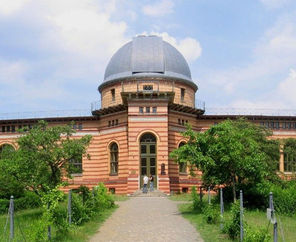There are some 300 staff working in the historic buildings of the Potsdam Institute for Climate Impact Research (PIK) on the Telegraphenberg campus in Potsdam. The researchers in natural and social sciences from all over the world are interested in global climate change and its ecological, economic and social impact. One of the Institute’s special features is the interdisciplinary approach between the four research areas: Earth System Analysis, Climate Impacts & Vulnerabilities, Sustainable Solutions and Transdisciplinary Concepts & Methods.
Another feature is the solution-oriented approach of the work of the Institute: scientists at PIK are investigating the capacity of the earth, as a system, to withstand human intervention. Their goal is to come up with strategies and options for the viable and sustainable development of nature and humankind. Their tools include system and scenario analysis, quantitative and qualitative modelling, computer simulation and data integration.
Understanding climate change and its impacts is a task no institute or country can meet alone. That is why PIK is superbly integrated, both nationally and internationally. In Germany, it is one of 86 scientific institutions that make up the Leibnitz-Gemeinschaft, an organization whose members seek to build bridges between the humanities and social sciences on the one hand, and the natural, life and engineering sciences on the other.
But PIK is also a key player in many global networks of research institutions and universities that have dedicated themselves particularly to questions of global environmental change. Scientists from PIK for example play an active role in the Intergovernmental Panel on Climate Change (IPCC) of the United Nations, also known as the World Climate Council. Its Working Group on Mitigation of Climate Change is coordinated by researchers from PIK. Since 2007, PIK has also hosted a Nobel Laureates' symposium every two years devoted to questions of global sustainability.






